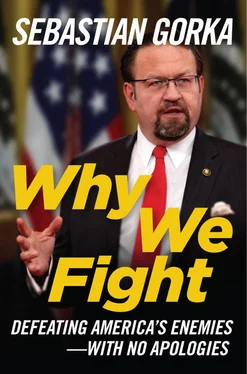McDaniel and his fellow American POWs developed a matrix of five columns and five rows, one box for each letter of the alphabet (except K). [4] Column 1, Row 1, stood for the letter A, along the way to 5/5 for Z. In this way the abbreviation for the Viet Cong, VC, could be conveyed by tapping five times, followed by a pause, then one tap, followed by one tap, pause, and then three more.
Tapping out messages to one another, prisoners could find out how the others were doing, rally spirits, or pass on news. Messages could be conveyed by quiet taps on a cell wall, the strokes of a broom sweeping a hallway floor, or the snapping of a laundered prison shirt being hung on a line to dry. Or just by coughing out the homemade Morse code when nothing else was possible. In this way, men kept their spirits up through the horror of the Hanoi Hilton—a horror that for Red McDaniel would last for years.
In his autobiography, Scars & Stripes , McDaniel explains not only how he survived the torture, depredations, and psychological abuse of those years, but also how he managed through it all to give to his fellow man, to help his fellow prisoners survive. He credits his mother, the sharecropper’s wife, with showing him the way.
Mrs. McDaniel’s optimism could never be broken thanks to her faith. Whatever the hardship, it was there to be faced, not denied or allowed to crush one’s soul. “[T]he Lord would provide whatever it took to make it each day.” And her son knew this not to be a empty slogan, but an article of belief that God could do anything. And so with faith in Him and in his Son, who made the ultimate sacrifice for all of us, there was no obstacle that could not be overcome. If He wants the highest good for me, the “the only way I could face each day [was] with confidence.” Red learnt that at home, but it was an attitude that saved him and helped him save his fellow men through the years in captivity:
If there was something to be lived in this sordid atmosphere of pain, then I had to live it. To abandon hope, the possibility of survival, meant I would lose possession of myself, my own worth, my own self-identity. In that case, the North Vietnamese had won—their intent was to destroy finally that sense of worth we all needed to hang on to.
McDaniel helped form a daily prayer club for the inmates. He would recite Bible verses he had memorized as a child, and the atheists and agnostics in the prison eventually joined them. The prayer club raised the morale of old prisoners and new captives, but worse was to come for McDaniel himself, including an extended period of solitude and the most brutal of tortures.
Some of the prisoners made a daring attempt to escape, communicating plans with the alphabet matrix during the weeks and months of preparation. McDaniel was not a member of the group that was attempting to escape, but when the plan was uncovered, he told his interrogators that he was, hoping to protect his fellow prisoners. What followed was the worst period of his incarceration, including electric shock torture. During these weeks, he moved beyond the simple optimistic attitude of his inherited understanding of God. Through his own suffering, he rose to a higher level of internalization, one made comprehensible by the suffering of Jesus on Calvary Hill. He faced the essential question: Had he truly allowed his Savior into his life?
McDaniel walked through that fire and survived. And for the heroism of his suffering for his comrades he was awarded the Navy Cross by a grateful nation.
The Vietnamese authorities mixed psychical abuse with more subtle psychological tactics, promising communication with loved ones or other concessions in exchange for the prisoners’ participation in propaganda films intended to undermine American resolve. Some gave in, but very few. Their attitude of military professionalism boiled down to: “Ours not to reason why, ours but to do and (sometimes) die.” As McDaniel writes,
We believed in our commanders, in our President, and in the cause, no matter how marginal or confusing at times, and every military man since the beginning stuck by that and delivered the goods as best he could. I believed that what we were doing in Vietnam was right, that we were trying to contain Communist aggression. And even if the South Vietnamese didn’t particularly care whether democracy or dictatorship ruled their lives, the point was that the United States was trying to draw the line here for the Free World. [5] Scars & Stripes, pp. 15–16.
With that commitment to American values and faith in a God who will never betray his followers, Eugene McDaniel not only survived but helped others to survive. The citation for his Navy Cross begins:
The President of the United States of America takes pleasure in presenting the Navy Cross to Captain Eugene Barker McDaniel (nsn: 0-1319/4751406), United States Navy, for extraordinary heroism as a Prisoner of War (pow) in North Vietnam from 14 June to 29 June 1969. Due to an unsuccessful escape attempt by two of his fellow prisoners, his captors launched a vicious round of torture to single out the senior pows who were to blame for the breakout. During these torture sessions a confession led to exposing him as the communications link between the senior ranking officer of the main prison camp and the adjacent annex detachment. He accepted the responsibility for the escape and fabricated a story of his own planned escape. After interrogation, the enemy severely tortured him in their attempt to obtain information about the organization and policies of the American pows in the camp. Under the most adverse of conditions, he heroically resisted these cruelties and never divulged the information demanded by the North Vietnamese. His exemplary courage, maximum resistance, and aggressiveness in the face of the enemy reflected great credit upon himself and upheld the highest traditions of the Naval Service and the United States Armed Forces.
Shot down on May 19, 1967, Red McDaniel returned home March 4, 1973. [6] Incredibly, the North Vietnamese didn’t even confirm that McDaniel was alive until 1970, three years after he had been captured.
Reunited with his loyal and loving family, he once more proudly wore the uniform of a United States Naval Aviator and received the recognition of his nation and his fellow veterans. Returning to active service, he eventually became the commanding officer of the USS Lexington , retiring in 1982.
McDaniel resisted for six years as a prisoner of the North Vietnamese and kept faith with America throughout. As prison “chaplain” for the Hanoi Hilton, he prepared a sermon for his fellow patriots as they waited to be flown home to their families, basing it on the Old Testament story of Job:
[W]ithout labor no man can come to rest;
Without Battle no man can come to victory,
And the greater the battle the greater the victory.
CHAPTER 4
Winning the Next War: Know Your Enemy
You may not be interested in war, but war is interested in you.
—ATTRIBUTED TO LEON TROTSKY
Donald Trump inherited a dangerous world thanks to the feckless polices of the preceding eight years and the global vacuum resulting from President Obama’s preference for “leading from behind.” In a world of presidential “apology tours” and American “strategic patience,” the real bad guys stepped into the vacuum so created and destabilized whole regions of the planet.
The world was on fire. Russia had invaded its neighbor Ukraine, China was aggressively building militarized artificial islands in international waters, Iran was charging ahead with its nuclear weapons program despite the mullahs’s lucrative deal with the United States, North Korea was launching missiles over Japan, and ISIS had established the first caliphate since 1924. There were more than sixty-five million refugees from violence around the world, a number unsurpassed even during World War II.
Читать дальше












